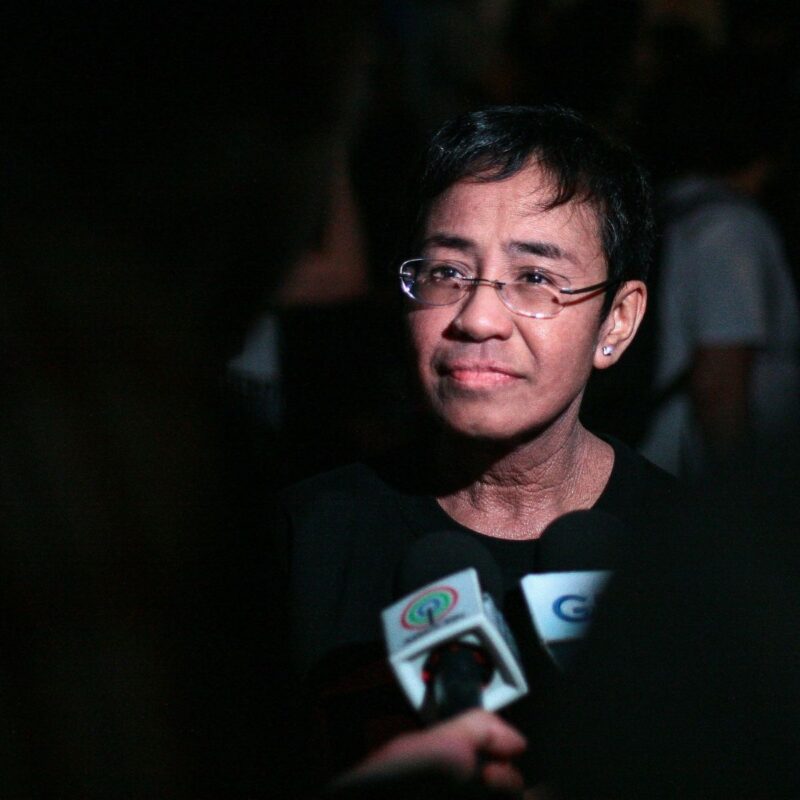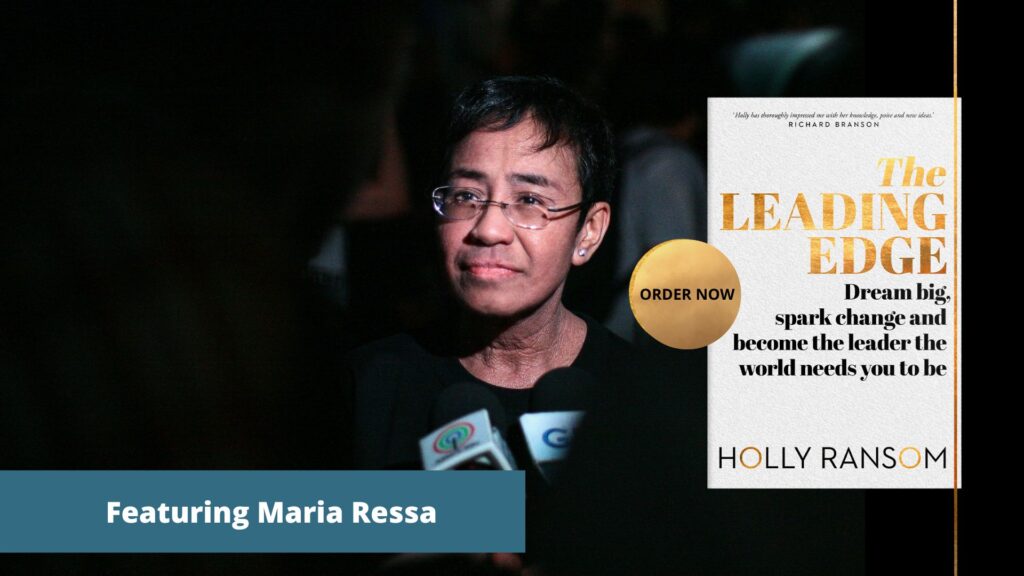Leadership in Press Freedom with Maria Ressa

Maria Ressa is a hero of mine.
She is a 2021 Nobel Peace Prize Winner and a freedom fighter for independent journalism.I loved sitting in to hear her talk on the Harvard 2021 Saland Lecture for Freedom of Press. Few leaders better embody the idea of staking your life on your opinions than Maria Ressa, founder of Rappler. Rappler is a Philippine online news website based in Manila. It started as a Facebook page named MovePH in 2011 and evolved into a complete website in 2012. At the time I corresponded with Ressa’s team in 2020, she was fresh from having been convicted of ‘cyber libel’ and awaiting a sentence of what could be up to six years in prison. A case that continues today (2022). The accusations were leveled at Ressa over an article that alleged links between a Filipino businessman and a judge. Amal Clooney, the barrister who is jointly leading a team of international lawyers representing Ressa, said the court had become ‘complicit in a sinister action to silence a journalist for exposing corruption and abuse’.[i] Ressa herself, at the post-verdict press conference, declared ‘Freedom of the press is the foundation of every single right you have as a Filipino citizen. If we can’t hold power to account, we can’t do anything.’[ii] Rappler has scrutinized the administration of the Philippines president, Rodrigo Duterte, exposing and documenting his brutal anti-drugs campaign, which has led, by some estimations, to tens of thousands of extrajudicial killings. In turn, the president has dismissed Rappler as peddling ‘fake news’, and his administration has instigated several cases against it.[iii]Ressa asks each of us, “What are you going to do to protect the facts in your area of influence? Because when you do that, you protect the truth.”
In an age where truth is hard to find, how can leaders distinguish fake news from fact?
A recent report by UNESCO titled ‘The Chilling: Global trends in online violence against women journalists’ finds that of the women surveyed, 73% have experienced online abuse, 25% have received threats of physical violence, such as death threats, and 20% have been attacked or abused offline in connection with online content. It’s clear that news information has been weaponized. Ressa says governments are using asymmetrical warfare against the people. In the Philippines, as well as all over the world, governments are covertly funding their own alternative news websites and disinformation systems.
Accountable elections and rule of law rely on facts. Ressa quotes Tim Snider saying, “If you want to rip the heart out of a democracy you go after facts. That’s what modern authoritarians do.” To enable media to play its rightful role in protecting democracy, we need to address three key pillars:
Technology:
Tech has created the problem so tech can solve it. Information technology has become a fire hose of lies. Social media platforms use the machine to create editorial choices. There is deliberate curation going on. Anger gets 5 x more weight than a like will get. Our news feeds are a choice and humanity is changing because of these choices. How do we change technology choices?
Journalism:
Don’t look downstream at the content and question freedom of speech, but upstream at biased algorithms that prioritize the spread of lies, hate, anger, and conspiracy. Content is only the byproduct. So how do we help independent journalism survive? International fund for public interest media. One of the most important investments you can make in democracy is in independent media.
Community:
Community is critical. We have far more in common than we have in difference. Rather than form communities within echo chambers, intentionally cross-pollinate your communities with a learning mindset. When we read our news, look for the pieces that empower us with information and choice of opinion, rather than those that force-feed the disempowerment of others.
Would you like to learn the practice of ‘doing the work to hold an opinion’? Head over to our bookstore to purchase your copy of The Leading Edge. [i] Ratcliffe, Rebecca, ‘Journalist Maria Ressa found guilty of cyberlibel in Phillipines’, Guardian, 15 June 2020. [ii] ‘Duterte calls Rappler fake news outlet’, Rappler, rappler.com/nation/duterte-fake-news-outlet [iii] ‘Charlie Munger on getting rich, wisdom, focus, fake knowledge and more’, Farnam Street
